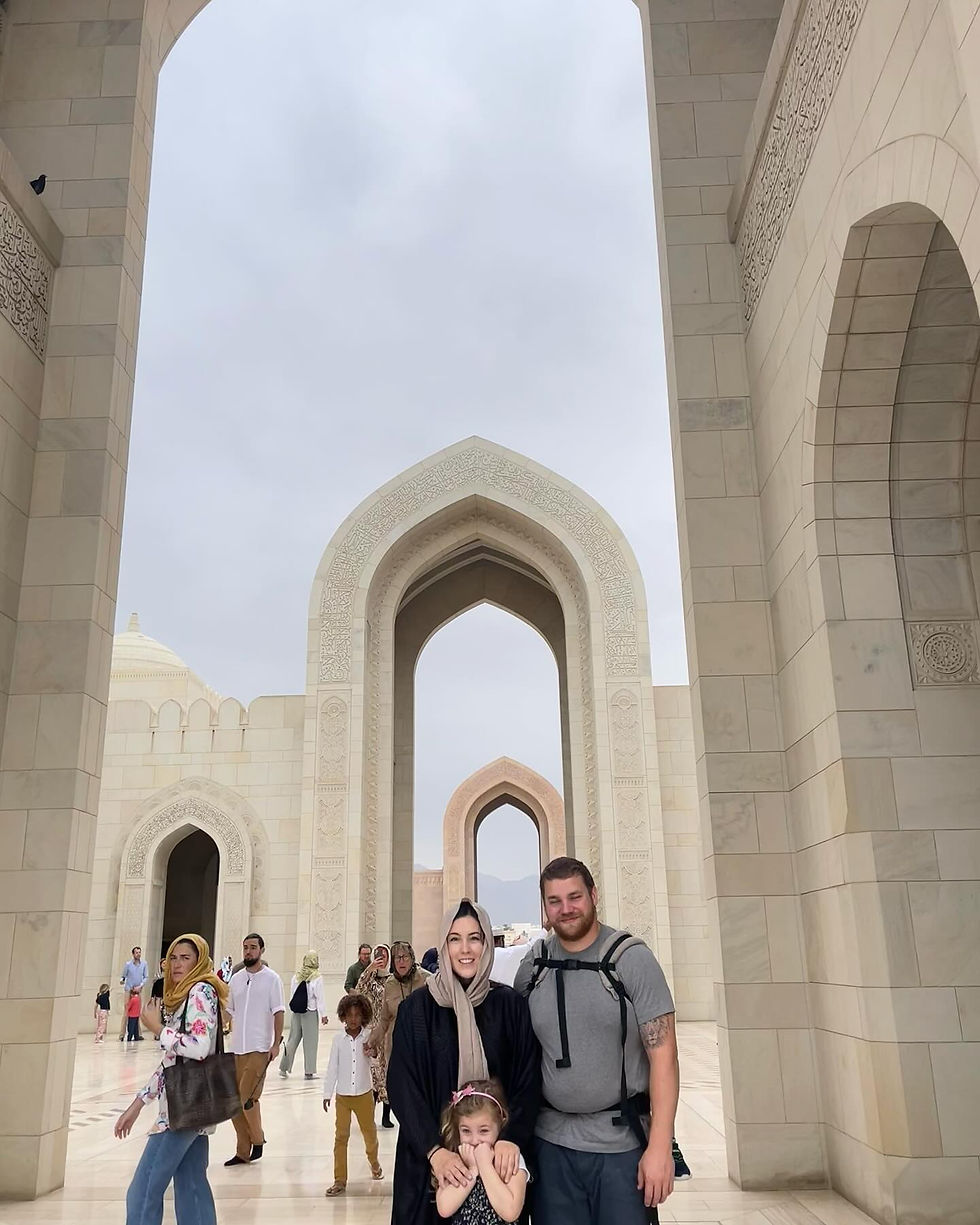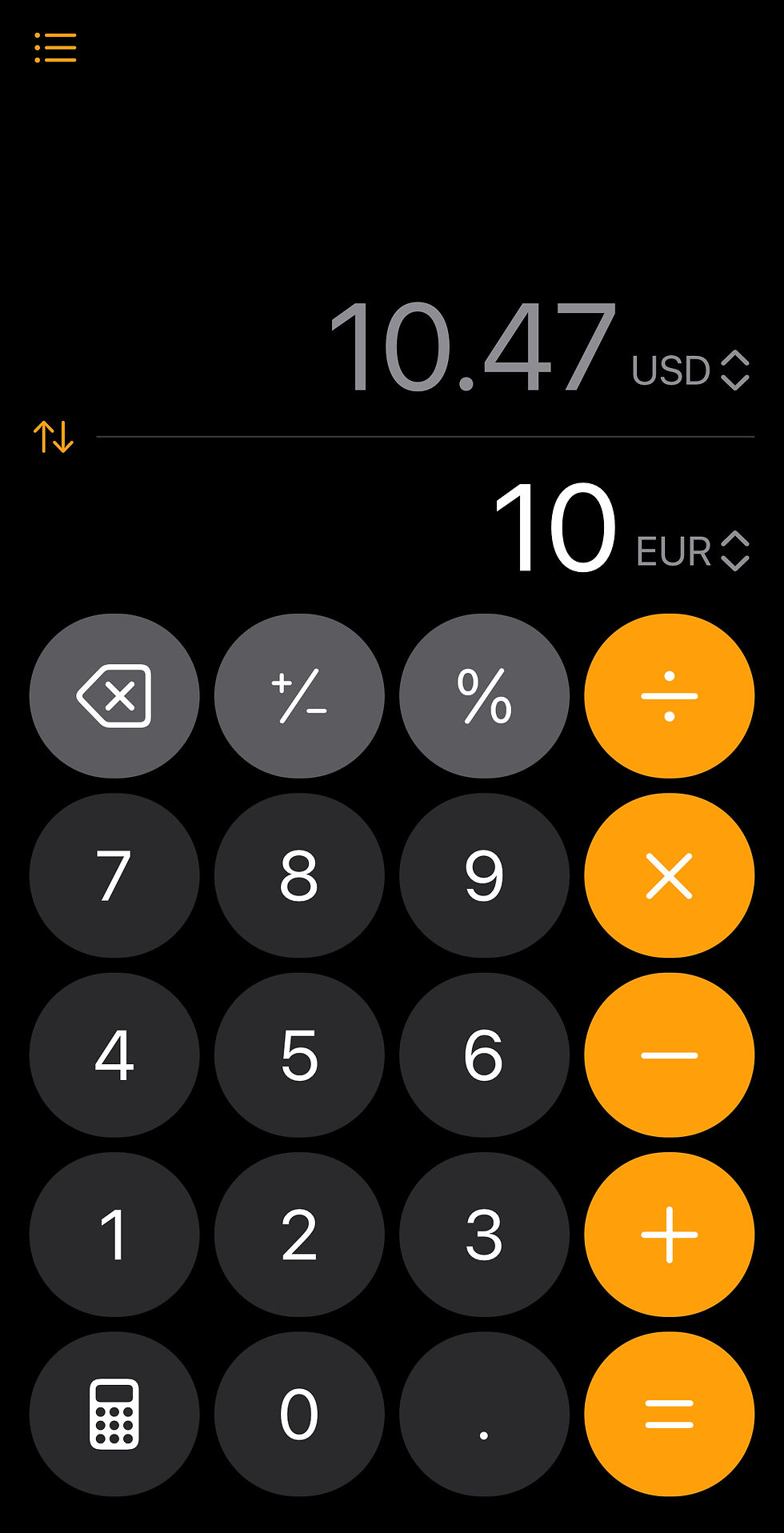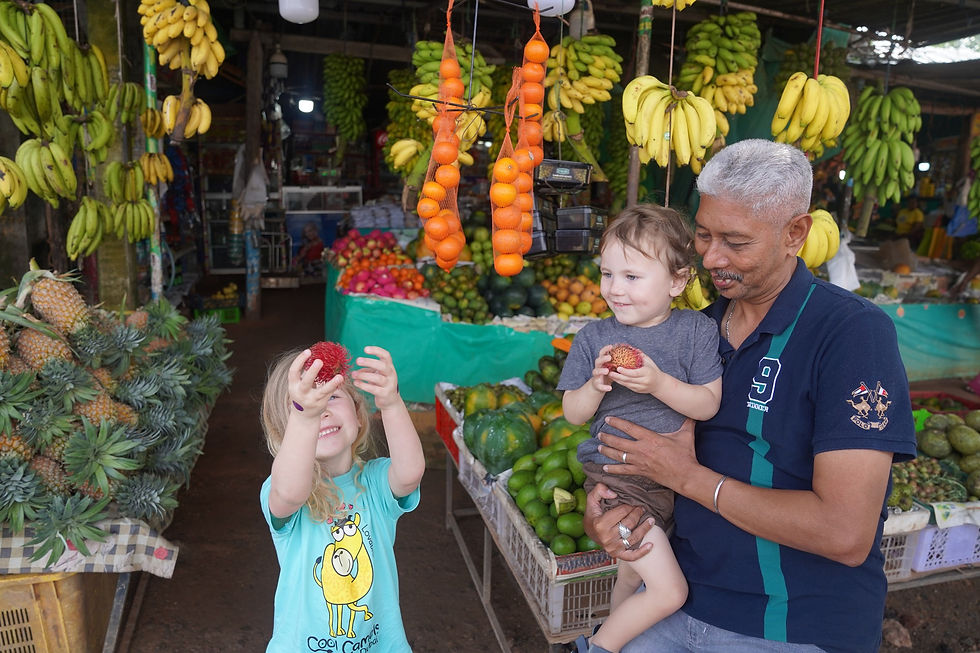How to Prepare for Your First International Adventure: Top Travel Tips for New Explorers
- Alanna Gabbett

- Feb 23
- 16 min read
Updated: Apr 3
Embarking on your first international vacation can be both exciting and a bit nerve-wracking. In this blog post, we'll share our best practical travel tips to make your journey smoother, including must-have apps, essential packing items, pre-arrival tasks, and strategies to explore new locations effectively. Having traveled to over 40 countries on trips ranging from just 3 days to 7 months, all while managing two toddlers, we are confident that our tips will help make your first trip more enjoyable and less stressful!
Bookmark these reads for later:
Unlocking the Best Travel Credit Cards: A Guide to Rewards, Benefits, and Perks
The Ultimate International Flight Packing Checklist for Families: What You Can't Forget to Bring!
Mastering the Art of Budget Travel: A Complete Guide to Planning an Affordable Vacation
How to Plan Your Dream Vacation: Unveiling Our Easy Step-by-Step Guide
This blog contains affiliate links, including credit card referral links. Please review the terms and conditions of any credit card before applying. If you make a purchase from one of these links, I may earn a small commission at no extra cost to you. I only recommend products and services I believe are valuable, and any opinions shared are my own. These links help support the blog and allow us to continue sharing valuable content with you. Thank you for your support!
What Should You Pack?
Perhaps the most difficult aspect of preparing for a trip, deciding the must-have items is indeed a crucial step of the process. Packing smartly can greatly enhance your travel experience by ensuring you have everything you need to fully enjoy your vacation.
Here is a list of items you should not forget:
Essential Documents
When traveling internationally, it's imperative to double-check that you have all the necessary documents prepared. Passports, visas, and travel health insurance are non-negotiables when preparing for an international trip.
Your passport MUST be valid for at least 6 months from the date of your departure (for most countries). Make sure to leave plenty of time for renewal as processing times can take from a few weeks to a few months.

Visas are not always required; however, you must be sure to check your chosen travel destination for information on visa requirements - whether it's an evisa, a visa on arrival, or simply restrictions on your length of stay.
While we have never had to show paper proof of our visas as they are usually attached to our passport information - it's wise to have them in case they are requested, or they aren't able to verify with your passport.
For example, to travel to Oman as a United States citizen, you need to apply for a visa for stays over 14 days, however, if you stay for a shorter period of time, a visa will not be required.We also recommend that you keep copies of your passport, visa (if necessary), travel insurance, and accommodation details. Store these digitally in your email or a secure cloud service and print paper copies to carry with you. This way, you can easily access them if needed.
Travel health insurance may be mandated by some destinations as a condition of entry. Additionally, some visas may require proof of travel health insurance. It's important to check official government sites to remain informed of any restrictions and requirements.
Clothing
Check the weather forecast for your destination and pack accordingly. Layering is often a good strategy, allowing flexibility for temperature changes. Be sure to always bring clothes you can mix and match, in order to save space in your luggage.
A light rain jacket, warm fleece, and comfortable walking shoes are a few non-negotiables you should always bring.
We found that even in warmer locations, it could get chilly at night, so a fleece was always nice to have.
Packing light is a great strategy to minimize travel stress and can also save you some money with the airline. Try not to overpack, although on your first trip, it's likely you will. We recommend bringing plain and neutral clothing that can easily be mixed and matched and avoid bringing multiple pairs of shoes. Comfortable walking sneakers and a pair of sandals are usually sufficient for most locations.
Laundry is widely available in most locations, and we have always been able to wash a few things when needed, whether that be at a laundromat, an Airbnb, or even through the hotel's laundry service. So don't worry about running out of clean clothes!
Consider bringing eco-friendly laundry sheets or sink packets to quickly wash items from your bathroom or kitchen sink.Medications
A small first-aid kit with essential medications for emergencies, as well as any prescription drugs. Additionally, bring common remedies for travel-related ailments, such as upset stomachs or colds, which can spoil your adventures.
Must haves for your first aid kit should include band-aids, antibiotic cream, pain reliever, antihistamines, motion sickness relief, and a thermometer. Make sure to also carry children's formulations of these meds if traveling as a family.
Make sure you keep prescription drugs in their original packaging and always carry your prescription label. Some countries may have restrictions on controlled substances or other medications so it may be necessary to obtain a doctor's note or additional documentation.

Electronics
Don't forget chargers for your devices and a universal power adapter if your destination has different outlets. And a portable power bank can be a lifesaver during long days of exploration, ensuring your devices stay charged. We always carry one on our long days walking around new cities and frequently use them on long, budget flights where they don't provide power outlets.
And of course, don't forget your phone charger, laptop, laptop charger, headphones, and any cameras or camera batteries.
Other Items
After traveling to almost 40 countries and taking trips that were up to 7 months long, there are a few extra items we always bring along!
We always bring a refillable water bottle, especially for trips within Europe. This is because tap water in most places is safe to drink and of course free. It's also more environmentally friendly than buying plastic water bottles every day. Many European cities also have fountains where you can fill up while walking around the city.
Another must-have for us are reusable grocery bags. We frequently grocery shop on our travels - this saves us money on eating out. However, even when you plan to eat out, you may still need to stop at a grocery store for drinks or snacks. Many markets will either not have plastic bags for your purchases or may charge you for them. It's so much easier to just carry one or two reusable bags and these ones have held up for over 2 years and 30+ countries - and they also fold up to fit in the palm of your hand!
Another gem we've discovered are freezable lunchboxes and snack bags. These have made it so easy to pack a picnic lunch or snacks for the kids. They work particularly well for trips when we frequently change accommodation - we're able to pack up our refrigerated items like milk and eggs for easy and safe transport to the next Airbnb.
A final important item to note is a portable carbon monoxide detector. We always recommend traveling with one of these, especially around Europe as we found out pretty quickly that having these in an apartment is not the norm. It gives us peace of mind and can be of particular importance if you're staying somewhere that uses a wood-burning stove for heat (like we did in Kosovo).
Check out our complete packing checklist HERE!Pre-Departure Tasks
Preparation doesn’t end with packing. Before you hop on that plane to your vacation destination, make sure to complete this pre-trip checklist.
Research Local Customs and Laws
Understanding local customs can enhance your experiences. For instance, in Japan, bowing is a common greeting, while in the Middle East, being aware of dining etiquette can help you make a good impression.
Additionally, some cultural norms or rules may require that you bring along certain clothing. For example, when traveling in the Middle East, it's important to bring modest clothing as a sign of respect to the locals. In addition, you will be required to cover your arms and legs in order to enter mosques and some other religious places.

Therefore, it's worth considering where you plan to travel and what activities or sites you'd like to see. This will help determine what you need to bring along.
Some other examples of this:
When visiting Meteora, Greece, women should bring a long skirt and loose clothing.
When visiting Oman, even men will be required to wear long pants inside mosques.
If visiting a local island in the Maldives, you should bring a more modest bathing suit.
If taking a cruise, you may be required to wear closed-toed shoes to participate in some onboard activities.

It's also important to research laws and restrictions so you don't end up in trouble with the local police and other agencies.
An example is that some countries don't allow drones to be taken in, such as Oman or the U.A.E. They may be confiscated, and you may face a heavy fine.
Other examples:
In Saudi Arabia and some other Middle Eastern countries, public displays of affection (such as holding hands or kissing) may be prohibited. Additionally, unmarried couples may not be allowed to rent a hotel room together.
When visiting Japan, you may be restricted from visiting onsens, pools, or gyms if you have tattoos.
You should never bring illegal drugs into a country; however, some countries may have stricter penalties. When traveling to Sri Lanka, the airport holds signs saying that if caught with illegal drugs, the penalty is death.
Chewing gum is prohibited in Singapore -the sale and import as well.
In Thailand, keep your opinions of the Thai royal government to yourself, as any criticism or disrespect will be met with legal consequences.
Booking.com is not available in Türkiye. While you can book accommodation on booking.com ahead of your trip, once in the country, you will not be able to access the site.
Some countries, such as Kuwait, may have a ban on alcohol, so be careful not to import any.
Research Airline Policies
From prescription medications to prohibited items, and baggage sizes, each airline has its own rules when it comes to what you can take onboard. Always check the official airline site before your trip so you know what their specific rules are.
General rules:
Carry-on dimensions are usually 22 x 14 x 9 inches (56 x 36 x 23 cm), but this can vary slightly.
The "3-1-1 rule" for liquids, gels, and aerosols applies to all airlines flying from or to countries with TSA or equivalent security regulations. You can carry liquids in containers of 3.4 ounces (100 ml) or less, all placed in a clear, resealable 1-quart (1 liter) bag.
All airlines have restrictions on sharp and flammable items as well as weapons.
Lithium batteries cannot be checked and must be carried in your cabin baggage. There may be a restriction as to the quantity and type of battery allowed.
Set Up Mobile Services
Check with your mobile provider about international roaming plans. Some plans may charge you upwards of $10 USD per day just to use any amount of data.
Alternatively, we recommend buying a local SIM card upon arrival or using an eSIM. Our favorite eSIMs are Holafly and Airalo. Holafly offers unlimited data plans at affordable rates - sometimes around $20 USD per week. And Airalo offers pay-per-GB plans.
Note that to use an eSIM, your phone will have to be unlocked by the provider and compatible with the eSIM. Unlocking our iPhones to use an eSIM the first time required paying off our phones in full - so make sure to check with your carrier if you're locked into a contract.
Notify Your Bank and Credit Cards
Inform your bank about your travel plans to avoid issues accessing your funds. Notifying your bank reduces the chances of your card being blocked for suspected fraudulent activity, which is particularly important if you plan to make large purchases.
Also inform credit card companies, even travel credit cards, of your travel plans.
Make sure you have 2-factor authentication, and that all addresses, emails, and phone numbers are up to date with your bank and credit cards before travel. This will make it easier to unblock your account should you have an issue with your bank overseas and you need to verify your identity. Additionally, it's important to bring more than one credit card in case one gets lost, stolen, or blocked. Bring at least one Visa and one MasterCard in case a vendor takes one over the other and make sure there are no foreign transaction fees.
We highly recommend signing up for a travel credit card to bring along on your trips. They offer no foreign transaction fees, reward you for spending with points and miles, and offer a host of other benefits like rental car protection, and compensation for travel delays or lost baggage.
Check out our favorite travel credit cards HERE!
Prepare for Emergencies
Know local emergency numbers and the location of nearby hospitals and your country’s embassy. This knowledge can provide peace of mind in case of unplanned situations or emergencies. We recommend keeping this information both in your phone and wallet or bag. Also be sure to look up the local emergency number in case you need fire, police, or ambulance urgently. In the United States, we have 911, however, other countries may use a different number, with some countries having separate numbers for fire, police, or ambulance. In most of Europe, you can dial 112 in an emergency, however,r some countries have an additional emergency number.
You should take time to memorize these numbers and save them in your phone for easy access.
Some examples:
United States – 911
Canada – 911
Mexico - 911
United Kingdom – 999 or 112
Australia – 000
Germany – 112 or 110 (police)
France – 112 or: 15 (ambulance), 17 (police), 18 (fire)
Italy – 112 or: 118 (ambulance), 113 (police), 115 (fire)
Spain – 112 or: 061 (ambulance), 091 (police), 080 (fire)
Japan – 110 (Police) & 119 (Fire/Ambulance)
India – 112 or: 102 (ambulance), 100 (police), 101 (fire)
Create an Itinerary and Double Check it
Drafting a flexible itinerary can ensure you maximize your time. Research attractions you want to see but also leave some room for spontaneity. While visiting a country and exploring on a whim can be exciting, you may miss out on important sites or experiences. Some advanced research and planning will ensure you see everything you want and have the best possible experience.
Before travel, use YouTube videos, blogs, Instagram posts, or other research methods to draft a list of places you want to see. Write down historical sites, museums, natural attractions, hiking trails, places to eat, foods to try, or unique accommodation options that interest you. With this, you can draft a flexible itinerary to make sure you get everything you want out of your trip.
Book Important Activities and Excursions
While we have the chronic problem of waiting to book until the last minute, we highly advise against it. While some attractions may offer last-minute discounts, this is usually not the case and by waiting to book, you're really only risking a booking being sold out.
For example, on our recent trip to Dubai, we began planning our itinerary and booking tours and entrances only 3 days before our flight. With this, we realized that a popular attraction we wanted to see (The Museum of the Future) was completely sold out. Come to find out that this attraction sells out months in advance. If a tour, museum, or site is particularly important to you, we recommend booking well in advance to ensure you don't meet with our same disappointment.

Bring Local Currency
When traveling to a country that uses a different currency, it's important to always bring along some appropriate cash. In this day and age, most places do accept credit or debit cards, however some small local vendors may still only accept cash. Additionally, many lesser-developed or poorer countries may only accept cash.
For example, in Sri Lanka, most restaurants or roadside fruit stands only accept cash. Some entry fees to temples or other popular attractions were also cash only. Always try to take smaller denominations as locals may not have large bills to change.
When converting currency, always be cautious of scammers or bad rates. We recommend ordering currency through your home banking institution ahead of your trip for the best rates. We were able to get most of the currency we needed by completing a form on our banking app. Within a few days, we drove to the bank, where they had the currency waiting for us and the fees were only a few U.S. dollars. In comparison, exchanging our currency at airport offices has resulted in the most fees being taken and it's now something we try to avoid.
Some currencies can only be obtained or exchanged inside that country, such as Bosnian Marks. In this case, you'll have to find a reputable exchange office on your arrival.Additional Safety Remarks
Leave your hotel and flight information with a trusted family member or friend. Additionally, you should consider sharing your itinerary with them if you plan on moving around to different areas.
If you are a United States citizen, you may also consider enrolling in the STEP (Smart Traveler Enrollment Program) program. This is a free service that allows U.S. citizens and nationals to register with the nearest U.S. embassy or consulate. STEP provides safety and security alerts, travel advisories, and emergency communication.
Check travel advisories for the countries you are visiting and always stay informed on the presence of natural disasters, political/civil unrest, or current health advisories or disease outbreaks.
You may consider a visit to a travel health clinic before your trip. They will go over any health risks, give you advice and tips, and provide any necessary vaccines.
Always purchase travel health insurance that covers emergency medical expenses, evacuation, and repatriation.
Be aware of your surroundings and keep your belongings close and secure. We do not recommend traveling in big cities with your passport. Keep it secured in your hotel safe and carry a copy of it in your bag. We also recommend keeping an emergency credit card and cash locked in the hotel safe in case you get robbed or lose your wallet while out. Pickpocketing is common in most touristy areas so be extra cautious in crowds and never leave phones or wallets in your back pocket.
Essential Phone Apps
In today's world of portable entertainment, we have access to a vast array of information and options. With everything you need at your fingertips, employing the right strategies can help make your travels smoother and more enjoyable.
Before you arrive at your destination, be sure to download the necessary apps, as they can greatly enhance your travel experience. Here are some essential apps to consider downloading before you begin your adventure.
Navigation Apps
Getting lost in a new city can be stressful. Apps like Google Maps and Maps.me are lifesavers when it comes to navigating public transport and finding walking or driving directions. You can download offline maps in advance to save on data and avoid unexpected roaming charges. Offline maps can be especially useful if you're traveling in areas where service and coverage may drop unexpectedly.
When traveling on public transportation, we recommend downloading the Moovit app. Navigating public transportation in a new city can be confusing and stressful, however, we found this app that makes it SO EASY!
The app offers:
Real-time updates on public transport schedules.
Route suggestions based on your current location or destination.
Notifications about service changes or disruptions.
Integrated multi-modal transportation options (e.g., combining bus, metro, and walking).
Offline maps for areas with limited connectivity.
Simply plug in your starting and ending points, and the app will tell you the best way to get there, giving you real-time navigation to bus stops or subway stations and even alerting you when your stop is approaching.
Currency Conversion
Currency can be one of the most confusing aspects in travel, especially when you've never traveled before. Understanding local currency can prevent budgeting headaches and help you budget more effectively. Apps such as XE Currency and Currency Converter Plus help you quickly convert currencies. For example, if you are traveling from the U.S. to Europe, knowing the exchange rate from USD TO EURO can help you manage your daily budget effectively.
Did you know that if you have an iPhone, you have the ability to convert currency right from your calculator app!


Translation Tools
Language barriers can present challenges. Google Translate and Microsoft Translator are excellent resources for translating signs, menus, and conversations. The camera feature on these apps can translate text in real time, making interactions much easier. This has been particularly useful in countries where you might encounter less familiar languages, like Japanese or Arabic.
Using Google Lens through the Google Translate app has made our travels so much easier. From grocery shopping and eating out to foreign websites and decoding public signage, it's as easy as holding your phone up and letting Google do the rest. It's a crucial app if you intend to visit a country where English isn't the primary language spoken!
Check out our full list of necessary travel apps HERE!
Travel Tips for Exploring New Locations
When you arrive, dive into the local culture to make your trip unforgettable. Here’s how to do just that:
Get Lost
Sometimes, the best adventures come from wandering off the beaten path. Allow yourself to explore local neighborhoods, markets, and parks. This way, you may discover hidden gems that are not found in travel guides. Wander through local neighborhoods and stop at small cafes not usually visited by tourists. You'll find a more authentic experience here and usually lower prices too.
But don't get too lost - download offline maps of your city in case you lose connection.
Use Public Transportation
Utilizing public transport can save money and provide a richer experience. Understanding the local transit system can help you navigate cities effectively. In cities like Paris, using the Metro not only saves money but also immerses you in everyday life.
Engage with Locals
Chatting with local residents can lead to insider tips you won’t find in any guidebook. These conversations may reveal lesser-known attractions or dining spots that tourists often miss, enhancing your journey.
Ask your Uber driver or hotel concierge for suggestions or tips.

Keep an Open Mind
Travel can be unpredictable. A flexible and open attitude can transform potential stressors into valuable stories. For example, a missed train might lead you to discover a cozy café nearby that you wouldn't have visited otherwise.
Document Your Experience
Writing a travel journal or blog can help you remember your adventures. Capture moments with photos, ensuring that these memories live on long after your trip. Reflecting on your experiences can also provide valuable insights into the future.
When we find hidden gems, such as cafes, viewpoints, or unique shops, we love to mark them on Google Maps for our future selves.
Preparing for your first international trip may feel like a big challenge, but with the right resources and knowledge, you can set out with confidence. Essential apps, smart packing, thorough research, and an adventurous spirit will pave the way for meaningful experiences. Each new place offers opportunities to learn about the world and yourself. Happy travels and embrace the journey ahead!




Comments